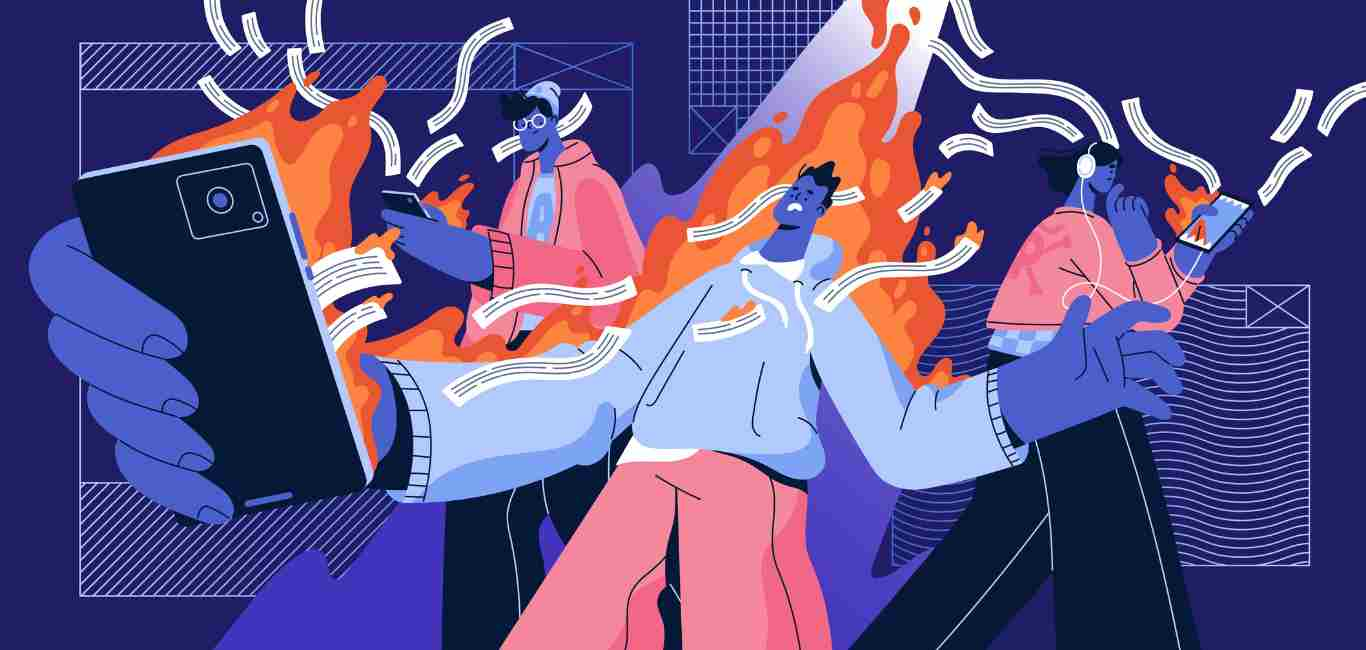
“I wasn’t getting a lot of matches, and I felt it was my fault,” says 21-year-old Ishaan Dinesh from Bengaluru, who over a four-year span using dating apps found that they affected his self-confidence negatively. Moreover, he admits to feeling pressure when being on such apps.
But Ishaan isn’t alone in experiencing this. Researchers from Canada’s Ryerson University studying the association between use of mobile dating apps and mental health, found a positive link between symptoms of social anxiety and depression in people using such apps.
Minimal effort
The comforts of being indoors and dictating ones dating choices with minimal effort has led to the rise in popularity of such apps over the last decade.
“Offline relationships are often tough to build, and the online space certainly provides the subscribers with an opportunity to have more dating options,” says Dr Manoj Kumar Sharma, professor of clinical psychology and coordinator of SHUT clinic (Service for Healthy Use of Technology), National Institute of Mental Health and Neurosciences (Nimhans), Bengaluru.
“The subscribers feel that they can manage rejection easily on online dating apps, but that necessarily is not the case,” Sharma adds.
In fact, this ‘harmless’ thrill-seeking exercise might affect one’s mental health since these easy-to-use apps dictate users’ dating and socializing choices with a single swipe.
Dr V Mithun Prasad, consultant psychiatrist at SRM Institutes for Medical Science (SIMS) Hospital in Chennai, says those looking for external validation are more inclined or likely to use dating apps. And this need might trigger anxiety or depression.
“Rejection or not finding the right match might lead to distress, anxiety and might also affect an individual to the point of causing him or her distress, even though there could have been external factors at play,” says Dr Prasad.
Performance pressure
For 38-year-old Bengaluru resident Shailesh Shrivastava being on a dating app was about finding that perfect long-term relationship.
“Since there is a possibility of getting multiple matches, one starts meeting multiple people during the same period,” he says. “This leads to a situation where a lot of performance pressure, decision-making, dealing with ghosting scenarios and taking calls to say no come into picture. This is where my anxieties started to kick in.”
Meanwhile, a 20-year-old engineering student from Kochi confesses that positioning a strong profile picture with a nice bio stressed him out. “I am not a creative and expressive person, and I also lack skills when it comes to taking those cool pictures for my profile,” he says. “I do have a hard time in deciding what pictures need to go on these apps, what to write about myself and whether it will click with the opposite sex.”
Borderline issues
Treading with caution is what would work for people with borderline mental health conditions, advise experts. For people with certain borderline issues, it would be appropriate to seek help before being on such apps since even trivial rejection tends to be taken at a higher emotional value.
“For depressed individuals with a sense of loneliness, being on such apps can lead to worsening of the depressive symptoms,” says Dr Prasad. “I don’t think it would be an appropriate platform for them, at least till they are no longer suffering from these conditions.”
According to Dr Sharma, when people looking for a long-term relationship and wanting to settle down face rejection, mood issues might come to the fore since they might not be able to process why the other person is not taking an interest in them.
“That rejection or disapproval may create psychological issues in this group who may not have [had] any psychological issues earlier,” says Dr Sharma.
Fear of rejection
Ishaan says his search for the right match has been quite the learning curve for him despite the challenges. He no longer gets bogged down by the usual dating-app pressures.
“The dating experience is quite different for men than for women,” he says. “There are significantly more men than women on dating apps. Essentially 80 per cent of women want to date only 20 per cent of men, but 20 per cent of men swipe right on most of the women. Women generally date upwards, and this does result in more men getting rejected by women.”
Ishaan’s observations seem to get the statistical nod too. In 2019, the global dating and networking app OkCupid revealed that women are 2.5x more likely to get a response than men if they initiate the conversation.
Body and self-esteem
Another 2017 study on ‘Tinder and body image and psychosocial functioning among men and women’ found that male users of the dating app scored significantly lower than either male or female non-users on self-esteem.
The study also found that Tinder users experienced higher levels of shame about their bodies and were more focused on their bodies as sexual objects. Also, men actively involved on Tinder reported lower levels of self-esteem. The results suggested that Tinder represented a medium for appearance pressures and its use was associated with a variety of negative perceptions about body and self, and with increases in individuals’ likelihood to internalize appearance ideals and make comparisons with others.

















